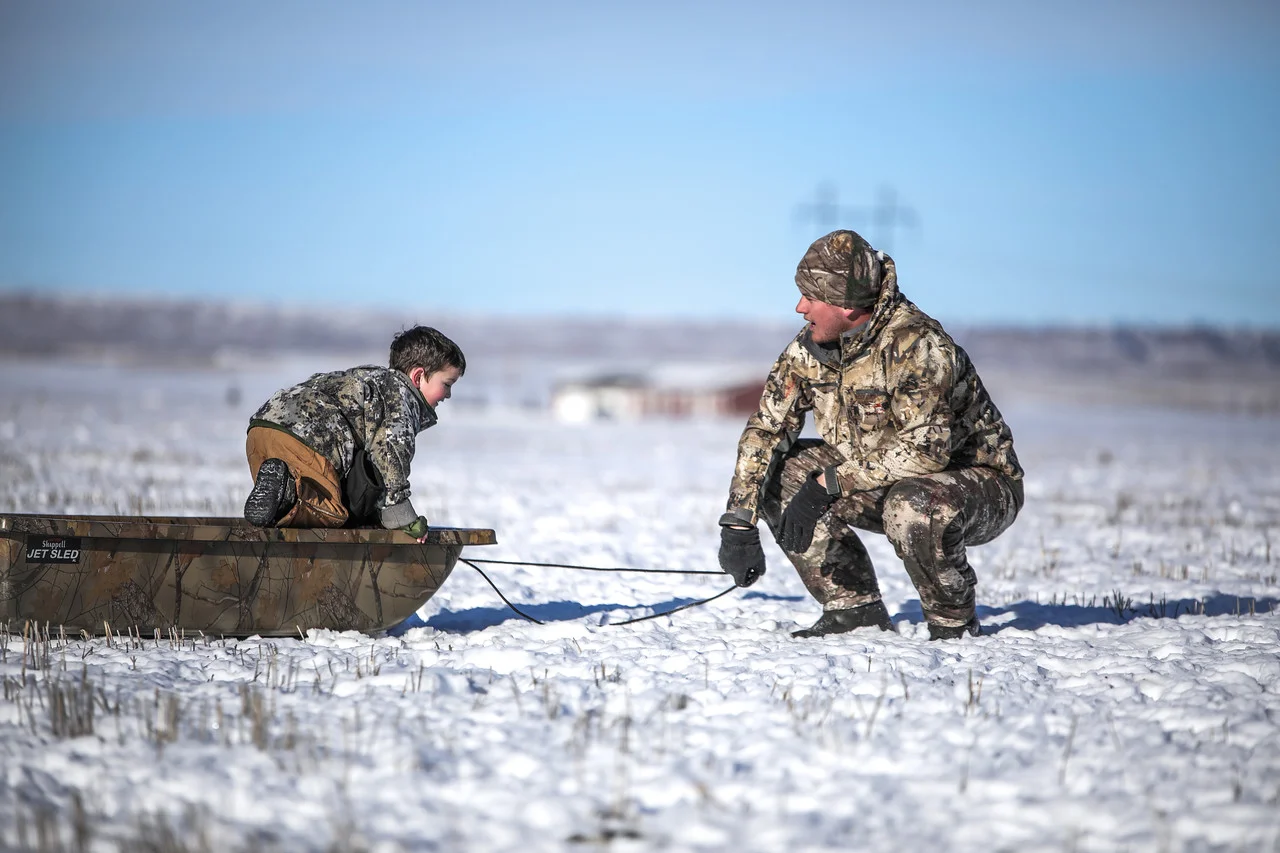Ducks Unlimited vs Delta Waterfowl
Do you love waterfowl hunting? Do you want to share these experiences with future generations? Well, groups like Ducks Unlimited and Delta Waterfowl are working hard to conserve and enhance waterfowl for flyways all throughout the country. Both of these conservation groups are well-established and reputable 501(c)(3) non-profit organizations, but they differ in how they seek to conserve waterfowl.
Thinking about joining one of these groups and/or making a tax-exempt donation? Well, follow along to better understand where your money will go and what type of waterfowl conservation it will fuel.
By Will Poston with photos from Ben Buchholz
Funding
It should be of no surprise, but without contributions from waterfowl hunters who understand the importance of conservation, these two organizations could not function. Ducks Unlimited (DU) and Delta Waterfowl (DW) get their necessary-revenue through several pipelines, including major gifts and memberships. In order to become a member at either DU or DW(click on the links to learn how to join), you need to pay an annual membership fee. The minimum membership level for both groups is $35, which gets you decals, magazine subscription, and other membership benefits. Additionally, this basic membership gets you a two-piece luggage set from DU, and DW offers a wide range of membership gifts for higher membership-levels. For comparison, DU has roughly 700,000members and DW has 60,000.
As total revenues go, DU has the advantage--by far--with $222 million from 2017-2018. DWs’ 2018 revenue was roughly $11.5 million. Out of these revenues, however, DW is slightly more responsible. 87% of DW’s $11.5 million revenue goes to its programs; whereas DU only used 83% of $220 million for its conservation and education programs. While, DU has significantly more influence in the member and money sectors, that does not wipe DW’s waterfowl conservation efforts.
Conservation Programs
Founded in 1937, DU has conserved over 14 million acres of valuable waterfowl habitat throughout North America. Their priority habitat areas are the Prairie Pothole region, Western Boreal Forest-Canada, Mississippi Alluvial Valley, Central Valley/Coastal California, Gulf Coastal Prairie, with many other projects too. In these priority habitats, and many other regions, DU relies on science, research, and biology to restore and improve key waterfowl habitats. Habitat enhancement makes up the majority of DU’s conservation projects. For example, DU works to restore grasslands, forests, and watersheds, which all improve nesting and breeding efficiency.
It’s a less than ideal situation, but the majority of America’s remaining wetlands are privately owned. So, a core facet of DU’s conservation efforts is working with landowners. One such of these measures is conservation easements, which essentially are a legal agreement that governs the way the land will be used in the future. For DU’s goals, perpetual conservation easements that protect wildlife habitat forever, while still offering the landowner recreation and certain economic benefits.
DW does not have the level of resources of DU, but that does not make them an ineffective waterfowl conservation organization. Tracing its roots back to 1911, DW has a long history of waterfowl conservation and even had early direction from Aldo Leopold, known as the father of wildlife management. Today, their conservation programs seek to improve duck numbers as efficiently as possible. With programs like hen houses and predator management, DW focuses on cost effective measures that have direct positive effects on waterfowl breeding efficiency. According to DW, predator management is their “most cost-effective duck production tool,” now that waterfowl breeding habitat is concerningly declining. These duck production programs make up an estimated 30% of DW’s spending in 2019-2020. The next highest expenditure is research--for good reason. Without solid research much of these programs would be obsolete. DW’s research focuses on a range of topics--management techniques, land policies, hunting regulations, and new hunter recruitment--that seek to maintain and improve waterfowl hunting.
So, how does this apply to you? Well, without conservation-minded hunters, these organizations could not operate, and without these conservation organizations, waterfowl hunting may not be the same in 20 years. While this is just a generalized comparison, we hope you gained a better understanding of what these groups do to improve waterfowl hunting all over the country. Also, now that you have a general understanding, you can make an informed decision about which organization you may want to join and support to conserve waterfowl for future generations.
Photo courtesy of Nick Costas
For more info on Ducks Unlimited and Delta Waterfowl, be sure to explore their websites and learn how to get more involved.





